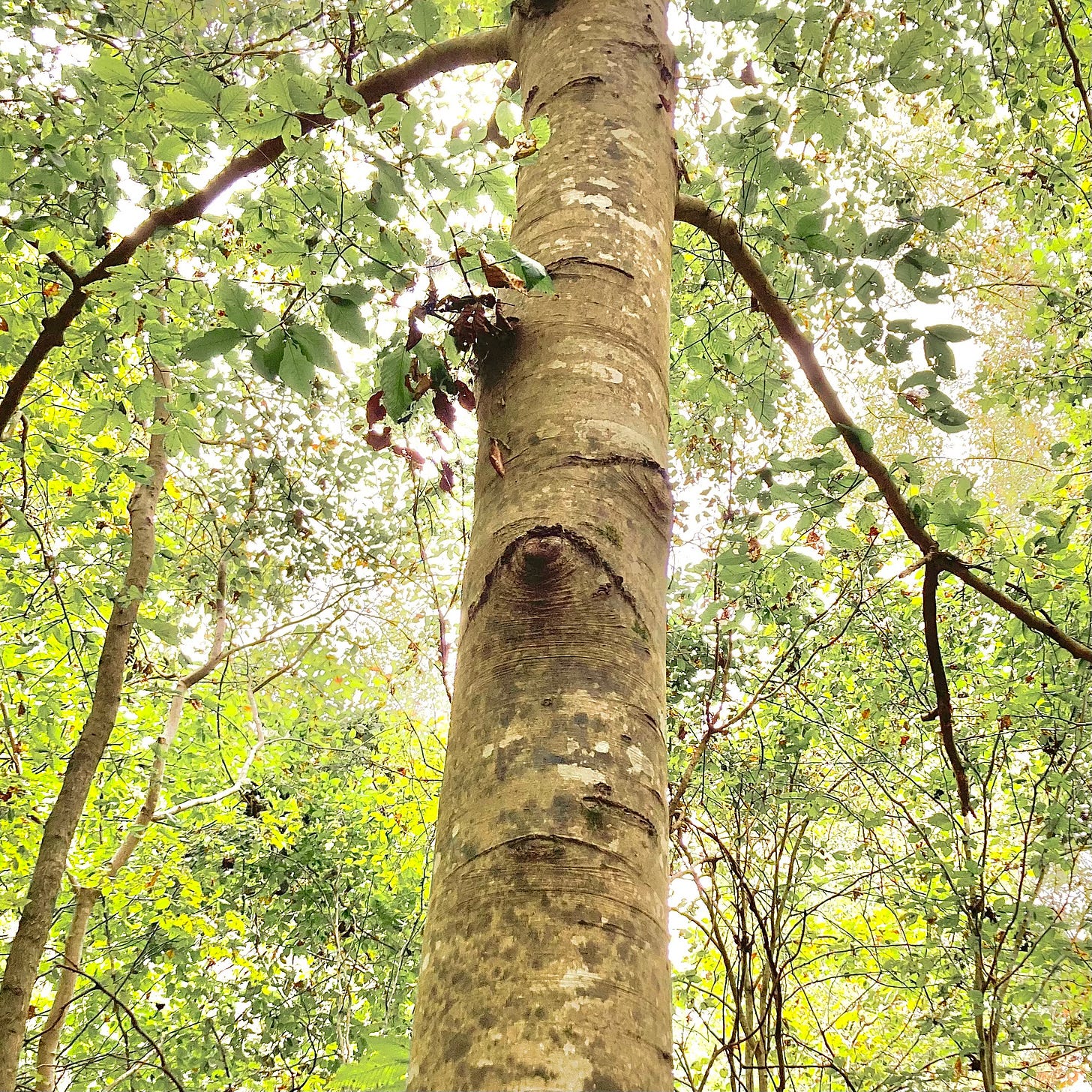When our grandmothers' grandmothers were young, the Forest Spirit Metsänhaltija, kept watch through the wild eyes of Beech trees.
The smooth-barked sentinel watched young Annu pick violets, purple and white, which she would carry home to place in a jelly jar beside her bed. Their wild fragrance gave rise to her forest-scented dreams.
And on the nights when storms shook trees with wind and rain—limbs crashing earthward—Metsänhaltija guided each falling branch away from where she slept.
As Annu grew, she moved through forest paths with kotoisuus, a sense of home inside her heart. From her grandmother, she learned which plants held healing properties, and which herbs could calm a fever’s rage.
In early morning hours when dew still clung like tears, Annu would gather Seneca roots: first washing, then boiling, and mashing with her mortar and pestle, transforming them into a thick, smooth paste. This, she would roll into tiny balls to press into an aching tooth for any villager who sought relief. The effect was known to last a very long time.
And like her grandmother, Annu always kept careful notes in her Forest Codex: a volume bound between covers of birch bark, marked in elderberry ink. It was a collection of healing recipes and tiny poems with wildflowers tucked between the pages.
For fever's fire:
Willow bark and three morning tears of pine
Heat depart, cool the heart.
For the belly's pain:
Mint that grows beside the stream,
Chamomile like summer's dream.
Storm within, be calm and still,
May gentle peace, the body fill.
Throughout the countryside, Annu was known as a skillful healer. Her cottage became an apothecary where the suffering patients came to find gentle hands and remedies that eased their deepest pain.
In truth, her cheerful spirit healed just as much as any herb.
Gentle words go deeper than the strongest root.
Finnish Proverb
⌘
The ancient guardian watched Annu’s husband, Olli, as well. For years they observed how he placed calloused palms gently on bark before each cut, how he spoke to every tree, asking blessing before blade touched wood. At every stump he left small offerings—bread torn from his morning meal, ale poured dark into the earth. These were gifts to honor what was taken, to thank the forest for its sacrifice.
Olli's voice also held reverence. He sang while he worked, composing little songs, and bringing them home to sing by the fire for Annu each evening. These melodies were born from the day's labor and his heart's devotion.
Olli and Annu were two who understood—who listened for wisdom in the goodness of their work—who heard kindness in birdsong and in the creaking boughs.
Now, the Forest Spirit Metsänhaltija had grown lonely.
A longing arose from deep within the forest's heart:
.
I've loved sweet Annu since her childhood days,
And counted every step to keep her safe.
She feels my presence like ancestral arms,
She trusts the shelter I have always givn’.
And I have watched sweet Olli love her well
With love that makes the very Moon ache bright.
.
He'd choose her over breath itself, and would
Choose death before he'd ever leave her side.
But who has ever loved the forest thus?
Who has burned with need to stay among the trees?
Not from work nor duty born, but from deep love
That mirrors well the human heart's own beat?
.
Perhaps these mortal souls might learn to sing the deeper songs with me?
Could love Metsänhaltija just as kin would love.
It happened on a morning painted silver-bright with frost, when breath hung visible like prayers. Olli kissed his Annu soft goodbye, a kiss that tasted of honey and held the warmth of their peaceful hearth.
Annu felt the forest watching, as she always had. But this morning something stirred in the moment—something she had never felt before. Her heart was heavy with sudden knowing.
Be careful, sydämeni.
The woods are restless this morning.
To be continued . . .
The entire series will be published one chapter per week.
Part One | Two | Three | Four | Five | Six | Seven | Eight | Nine | Ten
From the Finnish:
Kultaseni : my darling, or my sweetheart: Kultanen means gold in Finnish, and it's often used metaphorically to refer to something precious or valuable, like a loved one.
Metsänhaltija: In Finnish mythology a forest spirit, a haltija is a supernatural inhabitant of a specific place and a protector of living beings. A haltija of a locality is a solitary creature who protects their home, its nature and peace.
Kotoisuus is a Finnish word that refers to the comfortable and cozy feeling one gets when in a home or place that feels like a safe and welcoming space. Even a place inside oneself.
Sydämeni translates to my heart. It can refer to the physical organ or as used here as a term of endearment to a loved one.
Photo 1: Beech tree, Johnston Mill Nature Preserve, Chapel Hill, NC
Photo 2: Mortar & pestle
Photo 3: A page from my nature journal
Photo 4: Wild ginger, Duke Forest, Durham, NC
Photo 5: Beech tree, Duke Forest, Durham, NC









I love this line so much:
It happened on a morning painted silver-bright with frost, when breath hung visible like prayers.
What a special series. Your ancestors would have been proud, I'm sure, to know that they would be represented this caringly, many miles and years later.
Beech trees are important to Denmark as well, and actually bookend the beginning and end of the national anthem.
Anyway -- looking forward to the rest of the series!